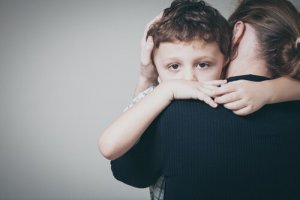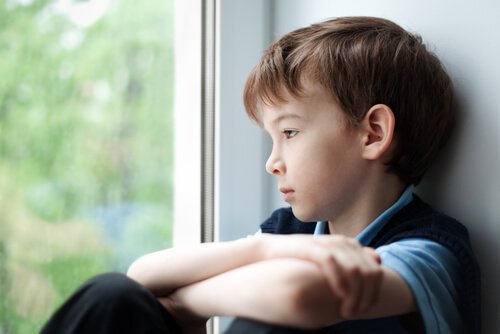Childhood Anxiety: Symptoms and Treatment

Childhood anxiety is becoming more and more common. Children are overstimulated, and adults aren’t doing much to control their exposure. Parents are also putting a lot of pressure on their kids, enrolling them in many lessons and classes instead of letting them play.
There are important differences between the anxiety that adults experience and childhood anxiety, which is why researchers study it separately. That’s the only way to be able to correctly identify it and find effective ways to intervene.
In this article, you’ll learn about the most common symptoms and treatments for childhood anxiety.
What is anxiety?
According to the American Psychological Association (APA), anxiety is the body’s response to extreme stress. The feeling is an emotional response to a perceived or real threat. Depending on what type of anxiety a patient has, the trigger can be internal or external.
It’s important to note that anxiety manifests itself in many different ways. In general, people talk about different psychological disorders related to this problem. In the case of children, the disorders are similar to adult disorders, but that doesn’t mean there aren’t significant differences.
Symptoms of Childhood Anxiety
1. Selective mutism
Selective mutism is when a child doesn’t speak in situations where you normally would expect them to. The silence interferes with the child’s life. It makes things harder at school and it makes it difficult for them to make friends.
Selective mutism manifests in cases when the child doesn’t have any physical speech limitations. On the contrary, silence is a way for them to protect themselves, although it’s also a source of emotional distress for them at the same time. A psychologist can diagnose this problem in children as young as five, although it normally manifests later on.
2. Separation anxiety
Most children get upset when they’re separated from their parents. It might happen if the adults have to leave for a while, or when children go to school for the first time. In the case of actual separation anxiety disorder, however, the symptoms tend to be much more serious.
A child suffering from separation anxiety feels extremely distressed and upset when they’re separated from their caregiver. It can happen when a child goes to school or on a trip, but it can also happen if a parent leaves the house for a short time.
The big problem with this kind of anxiety is that it directly affects children’s emotional well-being. It may require professional help.
3. Social phobia
The last childhood anxiety disorder is social phobia. This is when a child is too shy to relate to other people, even if they want to. They’ll also avoid certain situations so they won’t be exposed to criticism.
Again, this type of childhood anxiety gets in the way of a child’s development. Luckily, there are strategies that psychologists use to help children get back to a functioning level.

Treatment for Childhood Anxiety
1. Changing beliefs
Many professionals believe that anxiety manifests and is fed by a series of irrational beliefs. In the case of children, the symptoms are much less obvious, but researchers think that the source of distress for children with childhood anxiety is their thoughts.
Consequently, most of the attempts to cure childhood anxiety first try to change mistaken beliefs. So, the psychologist’s first job is to look for limiting thoughts and substitute them for others that will help the child.
2. Exposure
Changing thought patterns and processes isn’t the only thing you can do for children with anxiety. You also have to help the child slowly face whatever it is they’re afraid of. Only then will the child be able to overcome their fears and normalize them.
This process can be extremely complicated. However, the main strategies for treating anxiety are those we just mentioned above. Child psychologists are trained to treat children. With their help and the proper intervention at home, the symptoms will disappear.
This text is provided for informational purposes only and does not replace consultation with a professional. If in doubt, consult your specialist.








